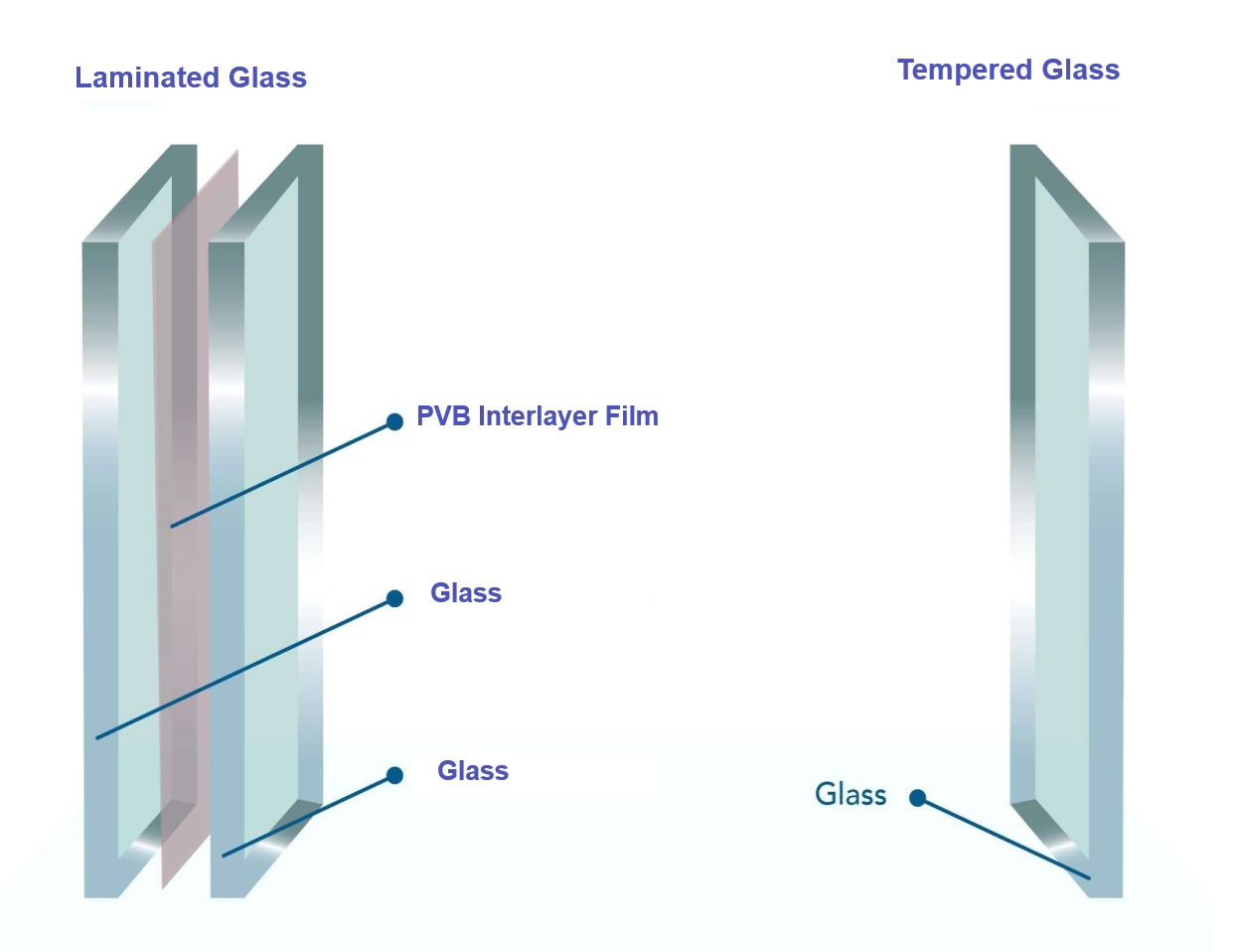Glass plays a crucial role in commercial architecture, enhancing aesthetics, functionality, and safety. When it comes to commercial doors, glass walls, and windows, the choice between tempered glass and laminate glass is pivotal. Each type offers distinct advantages, catering to different priorities and requirements. In this blog post, we’ll explore how tempered glass and laminate glass stack up against each other in the context of commercial applications.
Tempered glass
Also called safety glass, stands out for its exceptional strength and safety features, making it a popular choice for various commercial applications.
Benefits of Tempered Glass in Commercial Settings:
1. Safety: Tempered glass reduces the risk of injury in the event of breakage, crucial for high-traffic areas like commercial entrances and storefronts. It shatters into small, blunt fragments rather than sharp shards.
2. Strength: Commercial doors and glass walls face constant use and potential impacts. Tempered glass, with its increased strength, offers durability and resistance to breakage, ensuring longevity in demanding environments.
Typical applications for Tempered Glass:
Entrance doors
Laminate Glass
Laminate glass prioritizes safety and security, making it an ideal choice for commercial applications where protection against forced entry, sound insulation, and UV protection are crucial considerations.
Benefits of Laminate Glass in Commercial Settings:
1. Security: Commercial spaces require robust security measures. Laminate glass offers resistance to break-ins and vandalism, providing peace of mind for property owners and occupants.
2. Sound Insulation: Glass walls and partitions in office environments benefit from the sound-dampening properties of laminate glass, creating quieter and more productive workspaces.
3. UV Protection: Laminate glass can incorporate UV-filtering interlayers, safeguarding interiors from sun damage and reducing the need for costly UV-blocking window treatments.
Applications of Laminated Glass in Commercial Settings:
